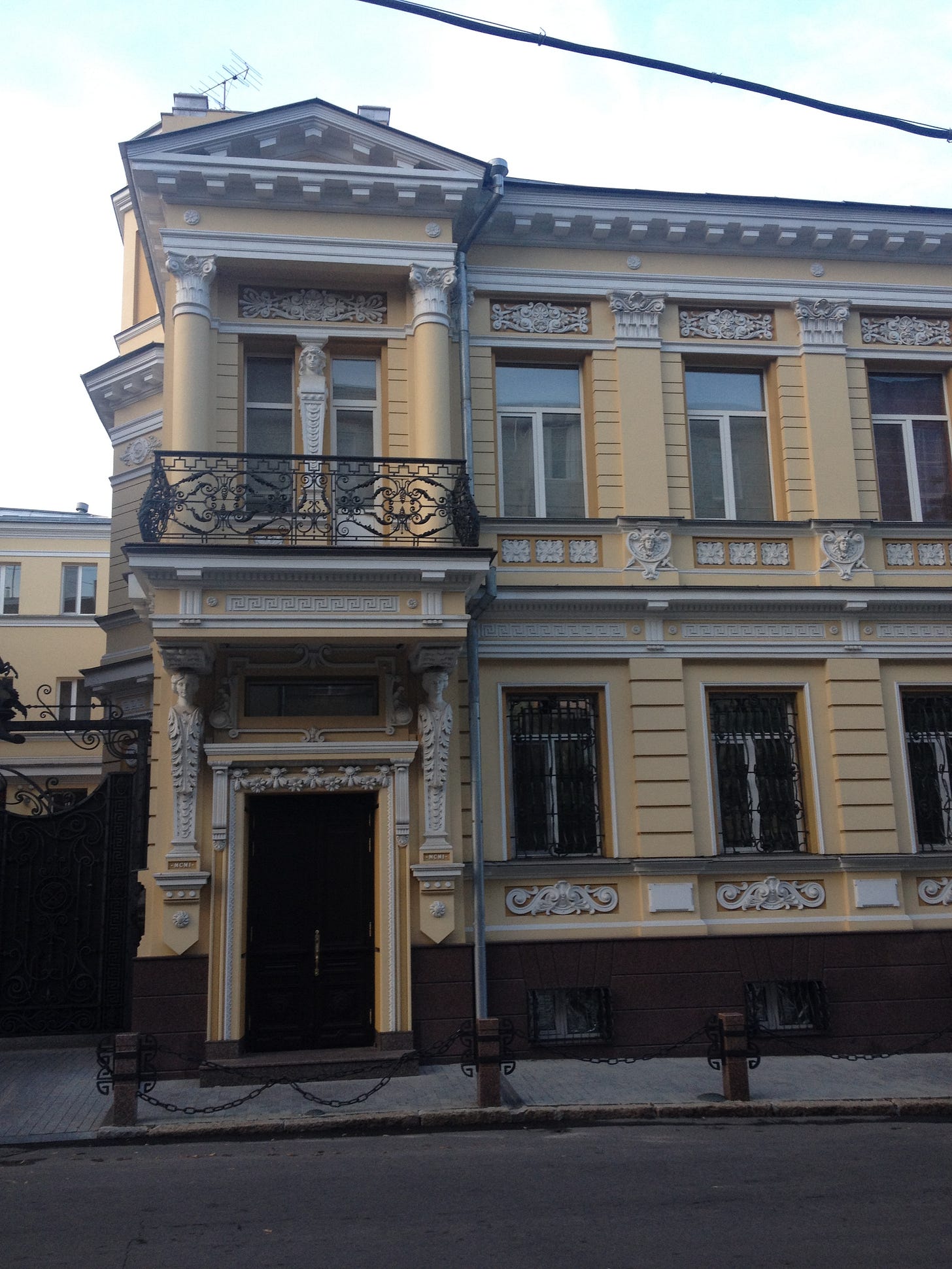King of Ukraine (1): Two Colonels and Communism
A bit of Ukrainian history as we anticipate Russian war (1/6)
As we contemplate a Russian invasion of Ukraine, let us begin from the people who are most concerned, the Ukrainians, and with what they have to lose. About twenty-five miles from the Russian border lies Kharkiv, Ukraine's second-largest city. The last time Russia invaded Ukraine, in 2014, Russia staged a rebellion in the city, which failed. Its supporters charged the opera house, mistaking it for town hall. This time, Kharkiv would very likely be stormed in the first week of the war by the regular Russian army.
Last fall, Kharkiv premiered “King of Ukraine,” an opera based upon the true story of a modern aspirant to a Ukrainian throne. The libretto was written by Serhyi Zhadan, a poet and novelist who was hospitalized with head wounds after the attack on Kharkiv in 2014. He was severely beaten after he refused to kneel and kiss the Russian flag.
In a series of six posts (this is the first), which draw from my book The Red Prince, I will tell the true story of the man who once wished to be king of Ukraine. Its lesson: a nation is what you love, not what you inherit.
On the eighteenth of August, 1948, a Ukrainian colonel lay dead on a cold slab in a prison hospital in Kyiv. After a year of beatings and interrogations at the hands of the Soviet secret police, he had finally succumbed.
The death was typical of the time and place. Civil war raged across the western borderlands of the Soviet Union, Ukrainian nationalists posing the greatest threat to Soviet power. Moscow had ordered massive ethnic cleansings to remove the civilian basis for partisan war. Tens of thousands of Ukrainians were killed in battle with Soviet special forces, and hundreds of thousands of family members and others were sent to the Gulag. The Ukrainian colonel was one of thousands of Ukrainians who died at the hands of Soviet torturers.
In the second half of the 1940s, Soviet anxieties of a world war nearly lost to the Germans blended with fears of a coming cold war with the Americans, the British, and the French. These concerns met in the sensitive border region of Ukraine, and in the person of the Ukrainian colonel.
The man had led anti-Soviet operations in Ukraine in his youth, then emigrated to France. He spent the Second World War in Vienna: a provincial city of the Third Reich during the war which became a center of espionage and intrigue thereafter. Those were the days of "four men in a jeep," of Graham Greene's Third Man. The Red Army had liberated Vienna, but the city was occupied by the four wartime allies: the Soviet Union, the United States, Great Britain, and France. While living in the British sector of the city, the Ukrainian colonel had placed his contacts at the disposal of French intelligence. At least one of these men became an American operative. The Ukrainian colonel paid for this courage. One morning in September 1947 he bid good day to his landlady, went out for lunch, and was never seen in Austria again. Agents of Soviet military counter-intelligence (SMERSH) abducted him and escorted him to Kyiv. There he was interrogated, there he was tortured, and there he died.
The Ukrainian colonel's older brother, in Vienna in 1948, was given the false information that his younger brother was serving a sentence in a Soviet camp. The older brother, meanwhile, had his own problems with communism. As it happened, the brother was a colonel as well, a decorated and courageous veteran. But this officer was not Ukrainian, but Polish. He had stopped in Vienna on his way back to Poland from a German concentration camp where he had spent much of the war.
Eastern Europe had been the site of the worst Nazi atrocities; the lands oppressed by Germans now fell under Soviet rule. In these early postwar years, Stalin's power moved ever west, touching the lives of the two brothers in different ways. Having lost hope of any receiving further news about his younger brother, the Polish colonel made his way home to Poland, and tried to press a claim to the family brewery. He found a country transformed by communism. While his younger brother was tortured in Kyiv, he waited vainly in the offices of bureaucrats of Poland's new regime.
His children had some problems adapting. On the first day of school, his daughter found herself confronted with a questionnaire. She was obliged to define her social class, the options being intelligentsia, proletariat, and peasantry.
The puzzled child did not believe that her family fit in any of those categories. In the end, she wrote: "Habsburg."
This was true. The Polish colonel, Karl, and his Ukrainian brother, Wilhelm, were indeed Habsburg archdukes, descendants of emperors and empresses, members of Europe's grandest imperial family.
(To be continued)





Fascinating. Can't wait for the next installment. I'm learning more history now than since my school days decades ago. I helps me understand the growing madness at home and abroad.
I'm on the last few pages of Robert Gerwarth's _The Vanquished: Why the First World War Failed to End, 1917-1923_ (2017), and had already decided that _The Red Prince_, which has been on one of my shelves since early 2020, was going to be next. What an interesting coincidence!